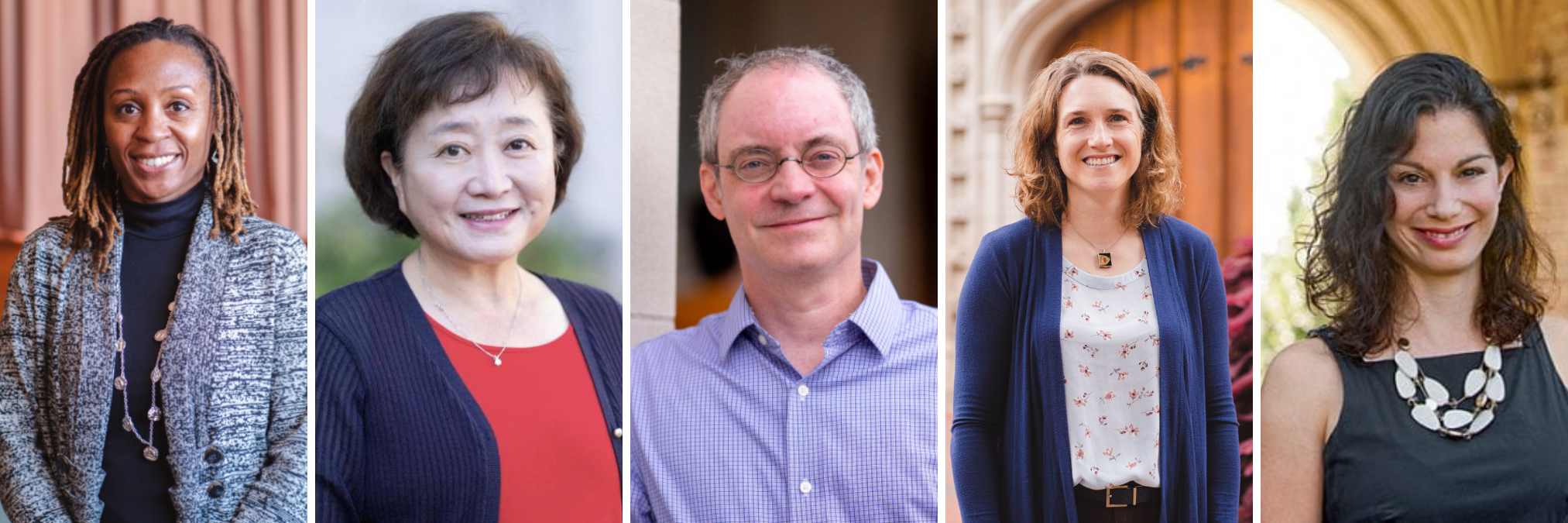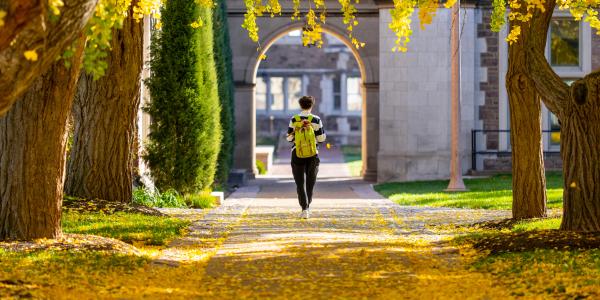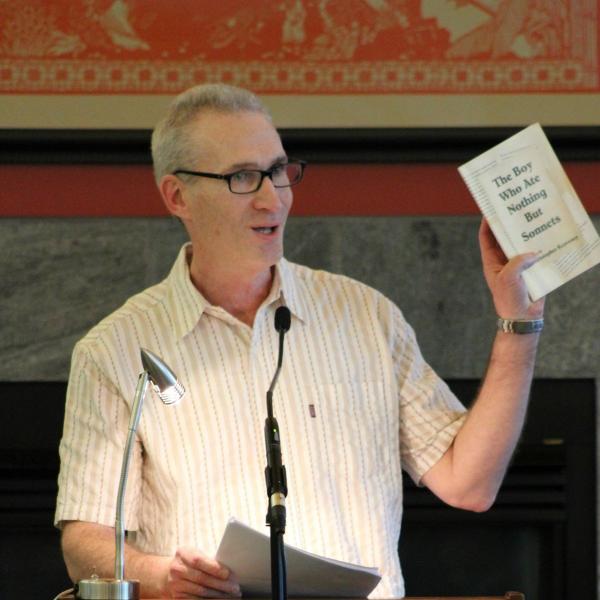Amanda Carey, Mijeong Mimi Kim, Frank Lovett, Eleanor Pardini, and Jen Smith are among the St. Louis-area educators who received the 2023 Excellence in Teaching Award.
Each year, Emerson Electric Co. recognizes a select group of innovative teachers in the St. Louis area through the Excellence in Teaching Awards program. At WashU, school deans work with the Center for Teaching and Learning to identify outstanding teachers to nominate for the award.
In 2023, Emerson honors nine WashU faculty, including five in Arts & Sciences: Amanda Carey, Mijeong Mimi Kim, Frank Lovett, Eleanor Pardini, and Jen Smith. These winners are exceptional educators whose classes are perennially popular with students.
"I am thrilled that these five Arts & Sciences faculty are being recognized for their pedagogical expertise with Emerson Excellence in Teaching Awards," said Erin McGlothlin, vice dean of undergraduate affairs. "As the large number of awards given this year to A&S instructors demonstrates, our faculty have fostered a rich environment of dedication to and innovation in teaching."

Amanda Carey, teaching professor in Spanish, is the heart and soul of WashU’s Spanish program. She teaches the bulk of the beginning, intermediate, and advanced Spanish grammar and conversation classes, and also created and currently teaches online Spanish courses for undergraduates in University College. Carey is creative, innovative, and always looking for cutting-edge ways of having students learn Spanish, through a mix of traditional in-class pedagogies and innovative digital educational technologies. She has also served as co-coordinator for the community service programs offered through Washington University and Acción Social Comunitaria.
Mijeong Mimi Kim, teaching professor of Korean language, is passionate about teaching the Korean language and culture. She constantly refines her lessons to offer the best possible learning experience, and her students develop a deep love and proficiency for the Korean language, often winning regional speech competitions and building successful international careers. Kim employs several teaching methods with a strong focus on inclusivity that underscores diversity, multiculturalism, and identity. Her curriculum blends technology with content-driven language lessons as students explore interdisciplinary topics such as films, literature, and popular music.
Frank Lovett, professor of political science, believes that a central purpose of higher education should be preparation for democratic citizenship. In his nearly 20 years at WashU, he has focused on cultivating the understanding and judgment necessary to responsibly appraise public problems while considering fundamental values such as justice, freedom, and equality. Lovett has done this with traditional “great books” seminars and by designing new courses on contemporary theories of justice. Since 2020, he has served as director of undergraduate studies for political science, helping to guide his department through the transition to remote instruction during the COVID pandemic.
Eleanor Pardini, teaching professor of environmental studies, teaches undergraduate courses including introductory biology, ecology, and science communication. She uses innovative and cutting-edge teaching methods to create inclusive, engaging, and student-centered learning environments. Pardini brings heart into the science classroom, making space to honor students’ identities and feelings so they can show up as their whole selves. Students often report group projects to be profoundly impactful experiences, helping them develop skills that they transfer to extracurriculars, classes, and work. Pardini regularly mentors students pursuing teaching careers, engages in professional development, provides instructional design coaching to peers, and serves on a university committee to advise on instructional technologies.
Jen Smith, professor of Earth, environmental, and planetary sciences, is focused on introducing students to the interconnectedness of human and earth systems. For more than 20 years, she has led the teaching of the first course for undergraduate majors in EEPS, integrating creative and innovative hands-on activities that garner rave student reviews. Smith also co-created a course called “Citizen Scientist,” which fulfills WashU's first-year writing requirement and emphasizes the civic responsibility of developing a scientific understanding of key societal issues. She has also helped lead many university-wide educational reforms as both dean of undergraduates in Arts & Sciences and vice-provost of educational initiatives.



